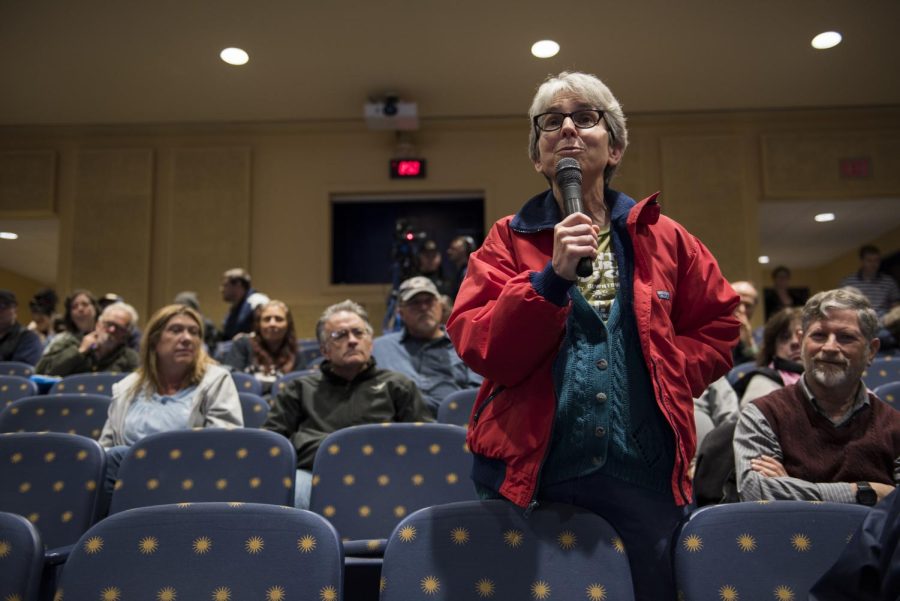May 4 Task Force holds commemoration, remembers Tent City
Attorney Nancy Grim asks an open question to the panel about what it was like to live in Tent City during the protests during the forum on Wednesday, May 3, 2017.
The May 4 Task Force hosted a panel discussion Wednesday called “Remember the Past, Continue the Struggle,” focused on keeping the memory of Kent’s Tent City alive.
Hope Brustein, panelist and Tent City occupant, said she was moved to go to Tent City after innocent students lost their lives fighting for what they believed in.
“We devoted our lives to getting justice,” Brustein said. “We should really think about the fact that we were fighting for tens of thousands of people who have been murdered by their own government and for whom justice is not just elusive, but utterly denied.”
In 1977, Kent State Administration planned to build a gym annex on part of the May 4 Memorial Site, causing uproar in the community. On May 12, 1,500 people rallied and marched to the Board of Trustees, hoping to end the plan.
When the request was denied, 60 people vowed to camp out and hold coalition meetings until the proposal to build the annex was removed, creating a tent city. Supporters set up a kitchen and a first aid station.
On July 12, police arrived to remove students and other protesters from Tent City. Although 193 occupiers joined arms to resist the arrest, police later hauled them away in buses to the nearest jail.
Tent City was destroyed, although protesters returned numerous times to camp out. That September, students and other community members held another rally, drawing in 1,300.
Evie Morris, one of the panelists at the discussion, said she was not politically involved, but when she came to Kent State, she realized the importance of fighting for rights.
“The sacrifices that the students who were unexpectedly murdered for exercising their constitutional rights and free speech — that could’ve been any one of us,” Morris said. “That is why, four years later, I continue to come back and to be very emotionally involved with what happened here.”
To Brustein, participating at Tent City meant fighting for justice.
“For me, Tent City was about building a movement for revolution in the United States,” Brustein said. “It was about justice, but it was also that I felt — and I continue to feel — that the United States of America, and the system, is the most powerful system in the world, but it is the world’s biggest oppressor.”
Jim Huebner, one of the panelists, said Tent City was a struggle for the protesters, the university and the community.
“It wasn’t all rainbows and peace signs up on that hill,” Huebner said. “It was serious, we were trying to do something. This was something that was going to show Kent State that there would always be students who would care about what happened.”
Francesca Demming is the social services reporter, contact her at [email protected].



